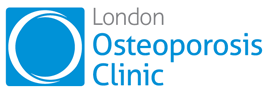Osteoporosis is an often silent but pervasive health issue, causing the bones to become so brittle that even minor strains or falls can lead to fractures. According to the World Health Organisation, this skeletal disease affects approximately one in two women and one in five men over fifty globally. We at the London Osteoporosis Clinic want to stress that this condition can have devastating effects if not diagnosed early and treated appropriately.
The stealthy nature of osteoporosis is part of what makes it so dangerous. It progresses without noticeable symptoms until a sudden strain, bump, or fall causes a bone fracture. A wrist, hip, or spinal fracture may be osteoporosis’s first symptom, hence its notoriety as a silent disease.
Our advocacy is simple: Be curious about your bones.
Understanding your risk factor for osteoporosis starts with family history. Bone health can be influenced by genetics, so it is crucial to determine if anyone in your family has had a history of bone fractures. Knowledge is power, and knowing if you have a family history can help you take preventative measures.
In line with our advocacy, we highly recommend taking the self-assessment survey available at Sticks and Stones. This quick survey aims to raise awareness of osteoporosis’s risk factors.
Our curiosity should not stop there. We must also understand what makes our bones stronger and weaker. Lifestyle choices such as maintaining a balanced diet rich in calcium and vitamin D, regular weight-bearing exercise, limiting alcohol intake, and refraining from smoking all contribute to healthier bones. Medication may also be necessary for some people with a high risk of fractures.
The good news is that osteoporosis is treatable and potentially reversible. We have witnessed numerous cases where, through a combined approach of lifestyle changes, medication, and ongoing monitoring, patients have seen significant improvements in their bone density.
So, we urge everyone, regardless of age or gender, to appreciate your bones. Being informed about your bone health and taking proactive steps can significantly lower the risk of developing osteoporosis and suffering from debilitating fractures. Remember, it’s never too early to start caring for your bones!

